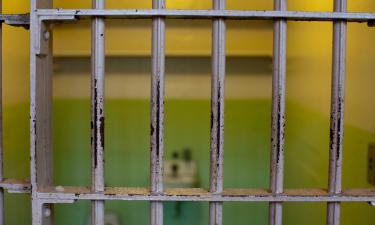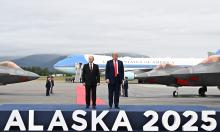Corruption scandals threat fragile Central American democracies
Presidents of Guatemala, Nicaragua and the once quiet Costa Rica face serious questionings by their behaviour at the head of the state.
After the bloody civil wars in the eighties, Central America faces now a new serious threat to its endemically fragile democracies. A wave of corruption scandals is shaking presidencies in Guatemala, Nicaragua, Honduras and the once transparent Costa Rica.
The most outstanding case is the one related to Nicaraguan President Enrique Bolanos, who admitted last week to having received a 326,000 dollars “donation” from Nicaraguan businessmen living in the United States. According to sources in that country, former President Arnoldo Aleman, himself in prison for corruption, is behind the accusations.
Shortly after Bolano's confession, Nicaragua’s Legislature initiated procedures to impeach the President. Quickly, leaders from other Central American nations as Guatemala’s Oscar Berger, Salvador’s Antonio Saca and Honduras’ Ricardo Maduro joined to demand the Organization of American States (OAS) to block Parliamentary bid to oust Bolanos.
The OAS itself has been the center of a scandal this month when its new secretary general, the ex President of Costa Rica, Miguel Angel Rodriguez was forced to resign to defend himself on corruption charges dating back to his presidency of Costa Rica, 1998-2002. Rodriguez was arrested in San Jose last week on charges he took kickbacks from Alcatel, the French telecom giant. Costa Ricans mobbed downtown San Juan last week to protest increasing corruption,
The case took analysts by surprise as this Central American country comes in third in Latin American transparency ratings, according to Transparency International. Costa Rica's current president, Abel Pacheco, is also suspected of taking some 490,000 dollars from the government of Taiwan.
Honduras is not free, indeed. This week, Honduran prosecutors criticized a suspension of an investigation against former president Rafael Callejas on the misappropriation of some 20 million dollars, along with other members of his government. "We are ashamed," said the statement signed by 399 prosecutors.
Despite allegations and poor records in terms of transparency across the region, these regimes, most of them of conservative extraction, enjoy the support of the overwhelmingly presence of the United States of America in the region. US State Department spokesman Richard Boucher defended Nicaragua’s Bolanos: "We deplore recent politically motivated attempts, based on dubious legal precedent, to undermine the constitutional order in Nicaragua and his presidency," he said.
Even when unmoral, low levels of corruption can be somehow tolerated by a wealthy society. However, big levels of corruption may have deadly effects over weak democracies also shattered by poverty, indigence and inequality.
Subscribe to Pravda.Ru Telegram channel, Facebook, RSS!




